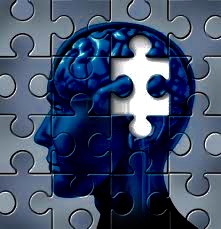
Witnesses in general on occasion have memory difficulties but where the memory is so lacking as to be unreliable, expert evidence may be admissable to show that a witness suffers from a mental disability which affects his or her ability to testify reliably.
The admissible evidence is not limited to the fact of the diagnosis, but extends to the facts and circumstances on which the diagnosis is based and the extent to which the credibility of the witness is affected .
Medical evidence will not be admissable however if the purpose is to test the credibility of the witness.
In Woolley v. College of Physicians and Surgeons of British Columbia, [1996] 6 W.W.R. 716, 19 B.C.L.R. (3d) 122 (S.C.), Justice Hall considered an appeal relating in part to the production of records. He found that the records sought related predominantly to credibility and character and, as such, did not need to be disclosed.
In R. v. Kliman (1996), 71 B.C.C.A. 241, 107 C.C.C. (3d) 549, in which the court found the trial judge had denied the appellant sufficient access to the records of the psychiatrist who had determined that the complainant had “a personality disorder-borderline” and “took liberties with facts and had an inability to distinguish what was factual from what was not” (para. 10).
R v Kliman followed Toohey v. Metropolitan Police Commissioner, [1965] 1 All E.R. 506 at 512 (H.L.), in which Lord Pearce stated:
…
Human evidence shares the frailties of those who give it. It is subject to many cross-currents such as partiality, prejudice, self-interest and, above all, imagination and inaccuracy. Those are matters with which the jury, helped by cross-examination and commonsense, must do their best. But when a witness through physical (in which I include mental) disease or abnormality is not capable of giving a true or reliable account to the jury, it must surely be allowable for medical science to reveal this vital hidden fact to them. If a witness purported to give evidence of something which he believed that he had seen at a distance of fifty yards, it must surely be possible to call the evidence of an oculist to the effect that the witness could not possibly see anything at a greater distance than twenty yards, or the evidence of a surgeon who had removed a cataract from which the witness was suffering at the material time and which would have prevented him from seeing what he thought he saw. So, too, must it be allowable to call medical evidence of mental illness which makes a witness incapable of giving reliable evidence, whether through the existence of delusions or otherwise.
…




